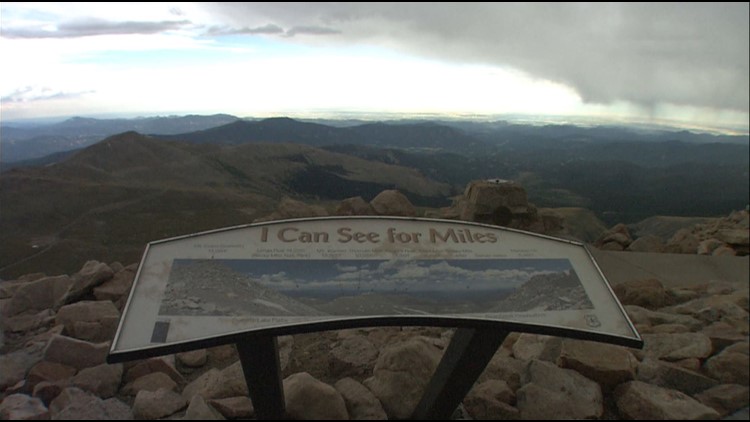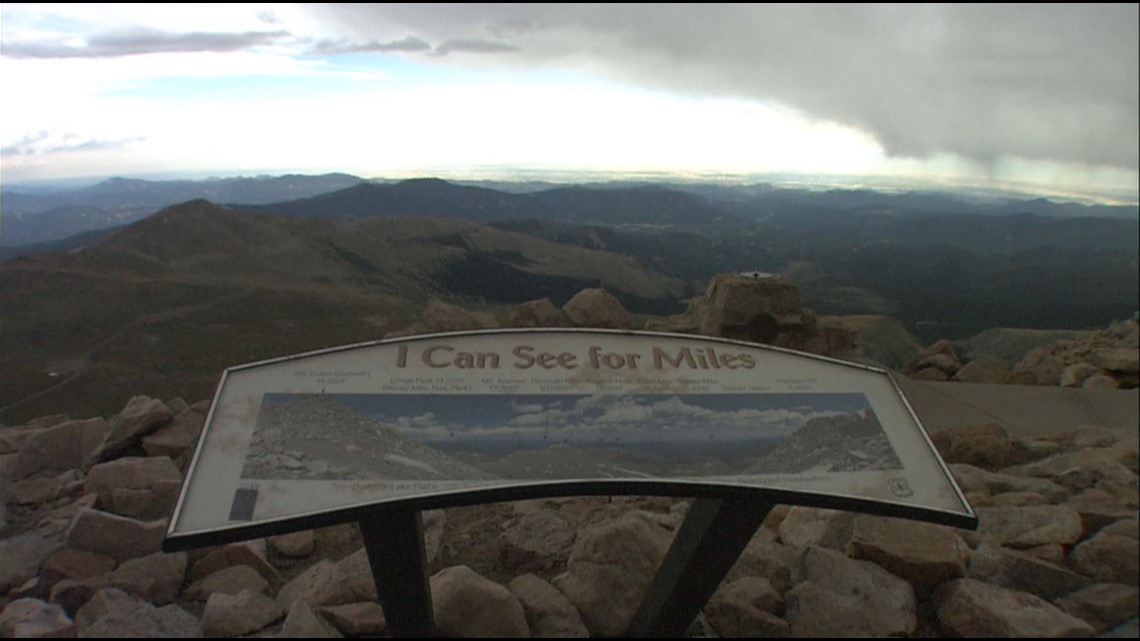
The Colorado Geographic Naming Advisory Board is considering changing the names of some of Colorado’s landmarks, including Mt. Evans, because of their ties to racism
DENVER — Content warning: This story contains racist and derogatory terms.
On its face, a name might seem like just a name. But with some context, the meaning behind that name can take a dark turn.
“There is a gulch in Chafee County called Chinaman Gulch,” Joie Ha, vice chair for the Colorado Asian Pacific Union, said.
“With just a cursory Google search, you look at any official definitions, it will say that ‘chinaman’ is a derogatory, xenophobic and offensive term to the Chinese community. It was used often as a racial slur, used by politicians to fuel hatred, distrust and prejudice, and it contributed to the Chinese exclusion act of 1882.”
The Colorado Geographic Naming Advisory Commission set up by Gov. Jared Polis (D) meets monthly to hear from Coloradans and discuss names that might need to be changed across the state.
Thursday, according to a news release, the commission looked at Negro Creek (Delta County), Negro Mesa (Delta County), an unnamed feature in Jefferson County, Chinaman Gulch, Redskin Mountain (Jefferson County) and Calkins Lake (Weld County).
“When we rename these places, it’s really not about discarding old history. It’s really about making sure there are public spaces that are open and free to everyone who wants to use them,” Sam Bock, a public historian and exhibit developer for History Colorado, said.
Bock says that while there’s history behind many of these names, the important thing is making sure our outdoor spaces have names that make everyone feel welcome.
“These place names are really important because they’re a common cultural touchstone,” he said.
Ha wants more people to understand the context behind the name of the gulch in Chafee County. She said community action can help let people know why the name is so offensive.
“I think renaming the gulch is a step toward enhancing diversity and inclusion in our community as a whole,” she said.
That exact reasoning was discussed in Thursday’s meeting in response to a comment from Polis. Speaking to the advisory board, the governor suggested Colorado avoid indigenous names that might be particularly difficult to pronounce so that the new name is more easily adopted.
“Yesterday, one of our senior staffers told me that the name you recommended was Mestaa’ėhehe. Today they sent me a pronunciation guide that said it’s ‘mess-ta-HAY,’ but its really not within the realm of comprehension for normal readers who are literate to be able to read a phenetic version that was supplied,” he said.
State Rep. Adrienne Benavidez (D) reminded the governor that working past some people’s inability to pronounce names from other cultures is part of the point.
“A name like mine is often mispronounced and you correct people. That’s not, in my mind, a good reason to avoid using names. That’s really problematic and I think it undermines trying to weave through the different cultures that make up our state,” she said.
The various names considered Thursday are just some of the suggestions sent to the board for review. Others include Mount Evans and Kit Carson Mountain.
RELATED: Geographic naming board to look at possible name changes for landmarks
RELATED: Coloradans share experiences with the term ‘acting white’
RELATED: Latina speaker, author helps women become confident negotiators
RELATED: New grant will help restore and preserve Dearfield, a century-old African American settlement
SUGGESTED VIDEOS: Full Episodes of Next with Kyle Clark













































